
I am a final-year DPhil student with the Ruaha Carnivore Project and the Wildlife Conservation Research Unit (WildCRU), at the University of Oxford. I specialise on large African carnivore research and conservation, and have worked on this in Mozambique, Malawi and Tanzania. For my DPhil research I am investigating the status and special ecology of, and threats to, lions, leopards, wild dogs, cheetahs, and hyaenas in the Ruaha-Rungwa conservation landscape in southern Tanzania. My twitter handle is @Strampelli.
Trophy Hunting: A plea to appreciate that not all is black & white
Recently, the UK Government stated it would consider banning the import of trophies from hunted animals in Africa. This decision, a brief internet search reveals, has been celebrated by animal rights groups.
I am a conservation biologist specialising in large African carnivores, such as lions, leopards, and cheetahs. As a result of a childhood passion for wildlife and wild places, I decided to pursue a career studying and protecting these species in their threatened and ever-shrinking natural habitats. Given my background, you might imagine that I am not overly-fond of the idea of shooting these wildlife – and you’d be correct. The idea of hunting an animal, especially one most of us consider so beautiful and worthy of celebration, is not one that I personally understand. As a result, I have never hunted anything or even shot a gun in my life. I have also never received any funding or support from hunters or hunting organisations, and trophy hunting brings me no personal benefit whatsoever. And yet, what you might not guess is that I believe an abrupt end to all trophy hunting in Africa, as is advocated by many animal rights groups, could pose an extremely serious threat to many populations of African wildlife.
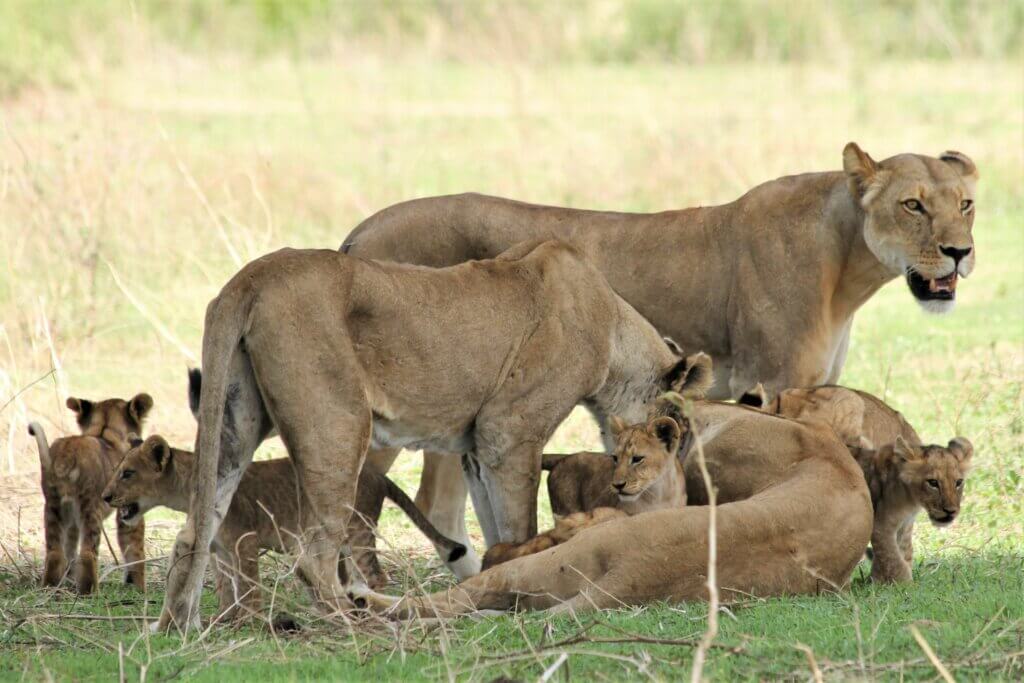
I would therefore like to use this space to try to explain why someone might be against stopping all trophy hunting in Africa, without necessarily being a hunter or profiting in any way from the practice. The goal of this blog is to try and convince you, the reader, that it is possible to hold such an opinion in good-faith, and that, in certain situations, it might actually be the opinion you should hold if you really care about preserving these animals for future generations.
Before I explain my reasoning, I first want to take a moment to stress a point that I believe has been lacking from debates surrounding trophy hunting: that is, the huge geographical variation in how trophy hunting is practiced and managed across Africa. Hunting for trophies actually takes place all over the world, including in the UK and the U.S., but I will focus on Africa here. Africa is roughly three times the size of Europe, and trophy hunting takes place in countries across all parts of sub-Saharan Africa. It is therefore important to acknowledge that what might be true regarding trophy hunting in, say, Ethiopia, might not be applicable 3,000 km away in Zimbabwe. I believe this is something which is rarely appreciated, and which leads both sides of the argument to be unable to relate to the other as a result of their varying experiences on the ground.
So, having said this, I want to present one country as a case study, and state why, at least here, I believe that working to end trophy hunting right now could be the last thing we want to do. While I realise that here in the UK we are talking about an import ban, and not a hunting ban (which would of course be at the discretion of the country where the hunting is happening), this has the same intentions of undermining the hunting industry as a hunting ban would. Nonetheless, the aim of this piece is not to argue whether or not trophy hunters are effective at sustainably managing protected areas, or if it leads to benefits for local communities (spoiler: sometimes it does, sometimes it doesn’t), or try to convince you that hunting is all good or all bad. Rather, I want to use this example to explain why the issue of trophy hunting is not as black and white as it might seem, and why some people that are dedicating their lives to conserving wildlife are so counter-intuitively staunchly taking a stand against stopping all trophy hunting in Africa. Some of the points I make are relevant to other countries too, others less so, but this is a debate for another time, and not the point of this blog. Furthermore, I want to emphasize that I am talking about ‘classic’ trophy hunting, involving wild animals, and not canned hunting, where animals such as lions are bred exclusively for the purpose of being hunted.
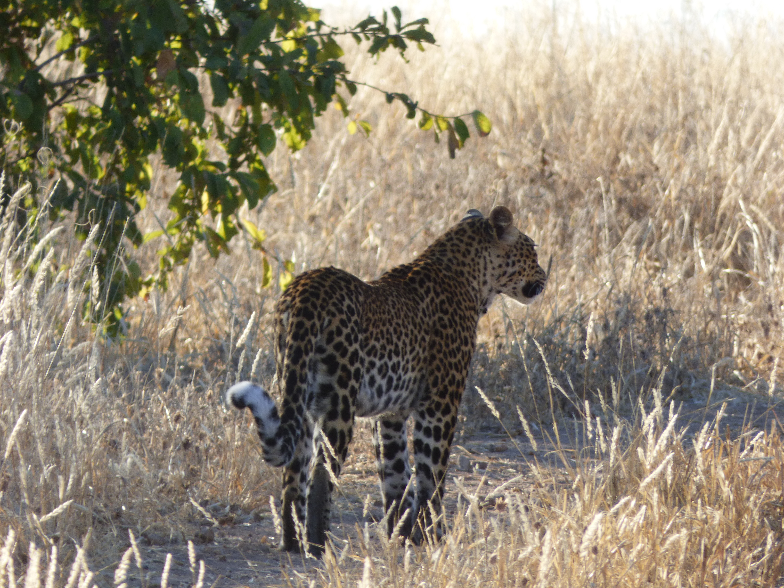
My doctoral research takes place in Tanzania, in East Africa. You might know the country from beautiful shots of vast savannahs, where hundreds of thousands of wildebeest slowly migrate across the iconic plains. What you might not know is that Tanzania is the country with the highest proportion of protected areas in Africa, covering almost 40% of its land. You might also not know that the majority of these protected areas are not for photographic tourism, but rather rely on trophy hunting to generate revenue. In fact, more than 250,000 km2 of Tanzania – an area larger than the United Kingdom – currently permits trophy hunting and not photographic tourism. Hunting operators lease these areas from the government, are assigned an annual number of individuals they can hunt for each species (a ‘quota’), and they then sell off these hunting rights to wealthy clients, mostly from North America, Europe, and the Middle East. As a result of the vast size of protected areas dedicated to hunting, as well as its high biological diversity, Tanzania is one of the most popular trophy hunting destinations in Africa. Tanzania is also believed to hold Africa’s largest remaining number of wild lions and globally important populations of many charismatic species, such as elephants, giraffes, leopards and cheetahs. Preliminary studies I am involved in suggest that, in Tanzania, the majority of the geographic range of these species is located not in photographic reserves, but rather in trophy hunting areas.
Knowing this, I would like to now propose to the reader a thought experiment. Let’s assume that, tomorrow, all hunting within Tanzania is stopped. Whether this be due to pressure from Western donors, or because import bans elsewhere make the industry no longer financially viable, or even through a magical snap of the fingers. It doesn’t matter. Tomorrow, we all wake up to the sound of celebratory trumpets: trophy hunting in Tanzania is no more.
So, what now? My first guess is that many of you will be thinking: “Easy – let’s turn these (now ex-) hunting areas into national parks, for people pointing cameras rather than guns”! And you wouldn’t be wrong – for wildlife, this would without a doubt be the ideal solution. And, in fact, there is some good news: driven in part by a fall in the demand for trophy hunting, the parliament of Tanzania recently passed a bill stating that up to seven protected areas previously dedicated to trophy hunting will be transformed into national parks, with only photographic tourism allowed. This is indeed a fantastic development, which I and all others supporting conservation have rightfully celebrated.
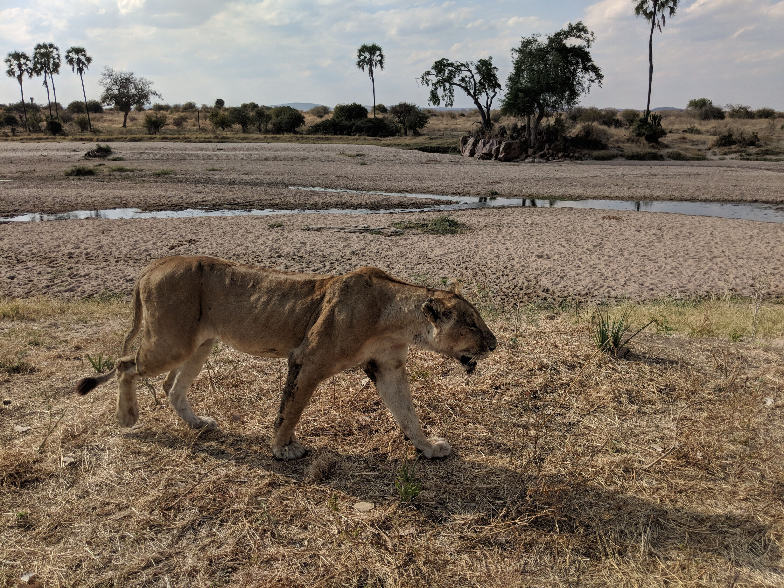
Unlike these seven reserves, however, the unfortunate reality is that many of Tanzania’s hunting areas cannot and will not become photographic tourism destinations once hunters are kicked out. This is for two main reasons. The first is that many are unsuitable for photographic tourism. In 2018, I spent seven months carrying out wildlife surveys across five different hunting areas in Tanzania, one of them being the second largest in the country. Unlike the Serengeti or other popular tourist destinations, the vast majority of these areas are heavily-infested with tsetse flies, blood-sucking insects which deliver a surprisingly painful bite, swarming in the hundreds. So not exactly the ideal setting for a relaxing holiday. In addition, hunting areas are mostly not comprised of the wide open plains that are ideal to get that once-in-a-lifetime shot, but rather by woodlands, meaning that actually seeing animals can be extremely challenging. This, coupled with the fact that wildlife densities are also generally relatively low since many of these woodland habitats are naturally less biologically productive, means that even if some valiant, masochistic tourist were to brave the flies, they’d be unlikely to see much of the wildlife they flew halfway across the world for.
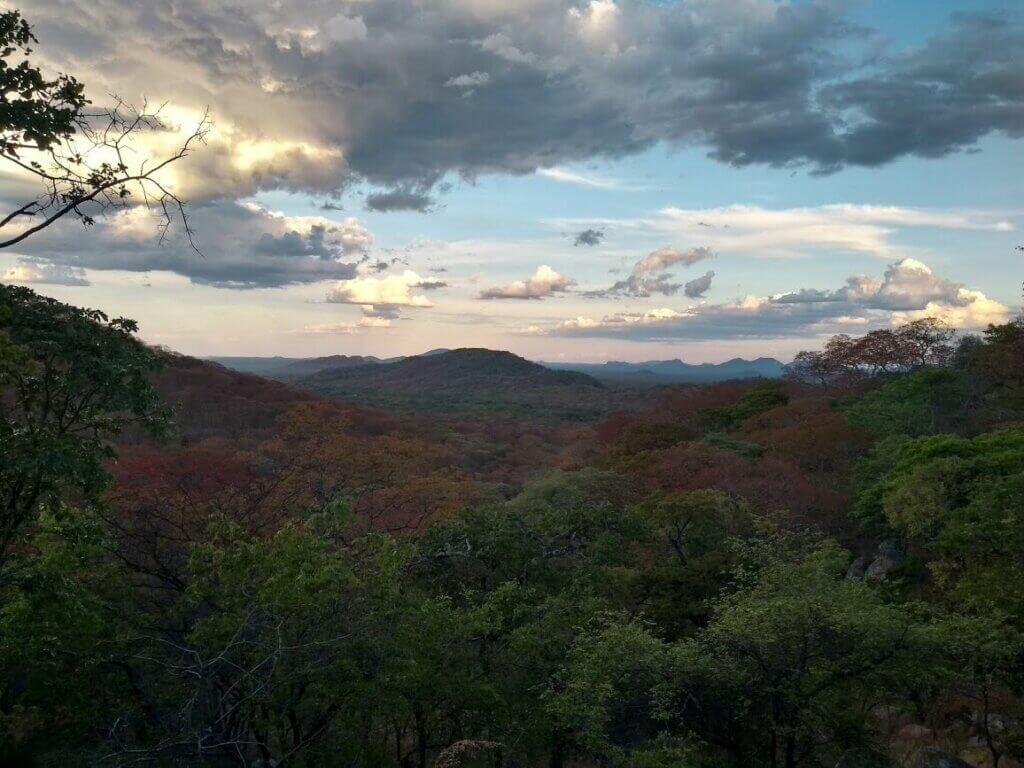
Which leads me to another way in which these areas are not suitable – the distance. Most hunting areas in Tanzania are in remote parts of the country, reachable from the main tourist hubs by either 40-hour drives along terrible roads or by splashing a couple of thousand pounds on a private flight. This remoteness also leads to considerably higher costs associated with operating a safari lodge – which will of course be passed on to the tourist. How many tourists are going to want to pay thousands of pounds to swat blood-sucking flies and have a sub-par safari experience, when they could be having their dream wildlife holiday for half the price instead? I personally wouldn’t, and I am yet to meet someone that would.
The second reason I believe many of these areas cannot be employed for photographic tourism is that the tourist market, although currently growing, is finite. Tanzania, as a result of protecting such vast areas of land, is already struggling to make the majority of its national parks financially self-sustaining. Adding even more land to manage will only exacerbate the issue, as the tourism industry will only grow by so much every year.
At this point, you might ask – “but then, why do hunters do it? Why do they pay tens of thousands of dollars to go to these places, if it’s as bad as you say?” Well – because they have to. Because, for reasons I honestly cannot understand, they really, really, want to shoot a lion, or a buffalo, or a leopard. They want to do this so badly that they are willing to travel to these remote and challenging landscapes, because luckily for us most of the easily accessible and higher-density wildlife areas are currently conserved with photographic tourist dollars. As a result, they are not only willing to visit these more remote and unappealing areas, but also to spend tens of thousands of pounds in doing so, therefore providing them with tangible economic value.
And here, you might say – “Why must these areas necessarily make a profit? Why always place financial values on wildlife? Can wilderness not be protected for the sake of wilderness itself?” And, personally, I agree with you – I think there is a strong inherent value to wilderness and to wildlife, which cannot be quantified in solely financial terms.
However, let’s take a step back. Tanzania is a country roughly four times the size of the UK, and in 1952, its human population was circa 8 million. Today, Tanzania is home to about 58 million people, and by 2100 it is estimated that this will rise to over 300 million (UN). This is 300 million people, in a country where, in 2011, it was estimated that 49% of people lived below US$1.90 per day (World Bank). In this context, how can we ask the Tanzanian government to put aside hundreds of thousands of square kilometres of land for wildlife if this is not even creating any financial value to its people, who have the basic human right of wanting to improve their livelihoods through economic and social development? We would not, and have not, done this in Europe, and cannot ask the same of others. The opportunity cost of conserving large amounts of land solely for wildlife with no financial benefits in a developing country is simply too great. And, as predicted, over the last year numerous previously protected areas in Tanzania were degazetted by the Government, and allocated to villages for agriculture and development.
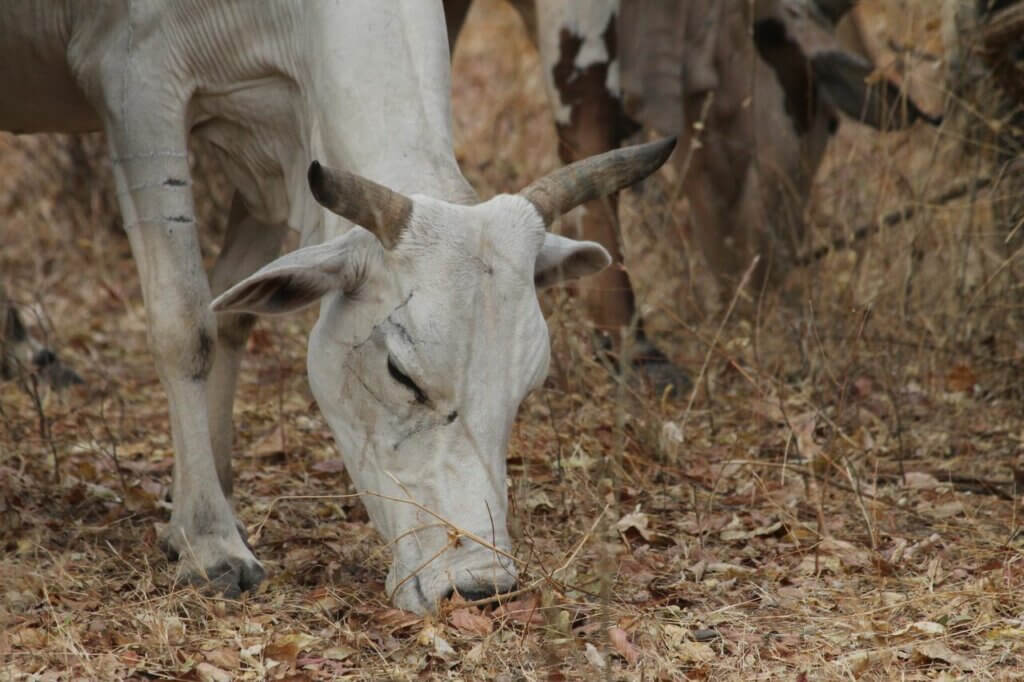
There would be one more option. What about providing financial incentives to conserve these areas in a way that does not involve having to kill a small proportion (because this is what it is) of the species to conserve it? Maybe through wealthy donors, or conservation NGOs leasing the hunting blocks from the Tanzanian government themselves, therefore ensuring these areas retain their value without having to kill anything? And my answer is – yes, absolutely. That is a great idea, and there is no good reason why it should not be implemented.
But we are not, are we? Nobody who is currently campaigning to stop trophy hunting has done this. Nobody has provided tangible solutions. If tomorrow a billionaire stated they would provide the Government of Tanzania with the equivalent financial benefit they gain from leasing these areas to hunting operators, and would invest the same amount of resources that hunting operators are legally required to into the management of the reserve, almost nobody would oppose it. I certainly wouldn’t, none of my colleagues wouldn’t, and the Government of Tanzania wouldn’t – it would be a complete win for all of us, and for wildlife. But, with the notable exception of American billionaire Paul Tudor Jones – who has done exactly this in Grumeti Game Reserve in northern Tanzania – nobody else is stepping up to make this happen. Right now, the only ones willing to provide value to much of this land are the hunters. If anybody reading this has a few spare hundred million pounds and would like to dedicate them to protecting these last pockets of remote wilderness in our overly-sanitised world, please let me know. You will find no opposition, only help from those like us that are trying to find solution. Anti-hunting proponents should put their money where their mouth is, bringing real solutions, rather than sabotaging existing conservation mechanisms because it doesn’t fit their narrative.
So is trophy hunting the answer? Not necessarily, and most certainly not always. Let me be clear: trophy hunting should not take place where it is bringing an objective detriment to that population, and most definitely should not target species which are locally threatened and for which only a handful of individuals remain. However, it is one possible tool to bring immediate, tangible value to wildlife, and one which we unfortunately do not currently have the luxury of demonising in principle. It should therefore be treated as such, with the caveat of being less desirable than other alternatives when these are available. Am I arguing we shall leave carte blanche to hunters? Absolutely not. Both within Tanzania and elsewhere, there has been evidence of malpractice and over-hunting in the past, and all efforts should be made to ensure hunting is carried out sustainably and in such a way that it provides considerable financial benefits to the communities living around these protected areas. Trophy hunting should be tolerated and adopted as a conservation strategy if, and only if, no better viable alternatives exist for humans and wildlife for that area at that time – as I personally believe is currently the case in some places. Even then, resources should be invested into ensuring any hunting is carried out in the most sustainable and humane way possible, and, in the longer term, in developing mechanisms that will hopefully enable us to bring value to threatened species without having to resort to hunting, such as has happened in Grumeti.
What if, after hearing all this, you still believe that no matter the context it is always wrong to kill something for pleasure, and that trophy hunting should therefore always be prohibited based on this principle? While this is a valid ethical stance (assuming you’re vegan, of course), the unfortunate reality is that what is best for an individual animal is not necessarily what is best for the species as a whole. As a conservation biologist, while I of course care about the welfare of individuals, the main priority for me will always have to be the long-term survival of the population. Both myself and other fellow conservation biologists that have spent time on the ground learning about the issue, and who share these views, care deeply about wildlife. Our main interest is try and ensure that policy decisions help provide these threatened populations with the best long-term chance of survival. We have seen what happens when wildlife has no value: millions of acres of wild land can be lost in the space of a few years; within months, farms and cattle take the place of wildlife which has been there since the dawn of man. More lions can be poisoned or killed in retaliation for livestock losses in one location in a month than are killed through trophy hunting across the whole country in one year.
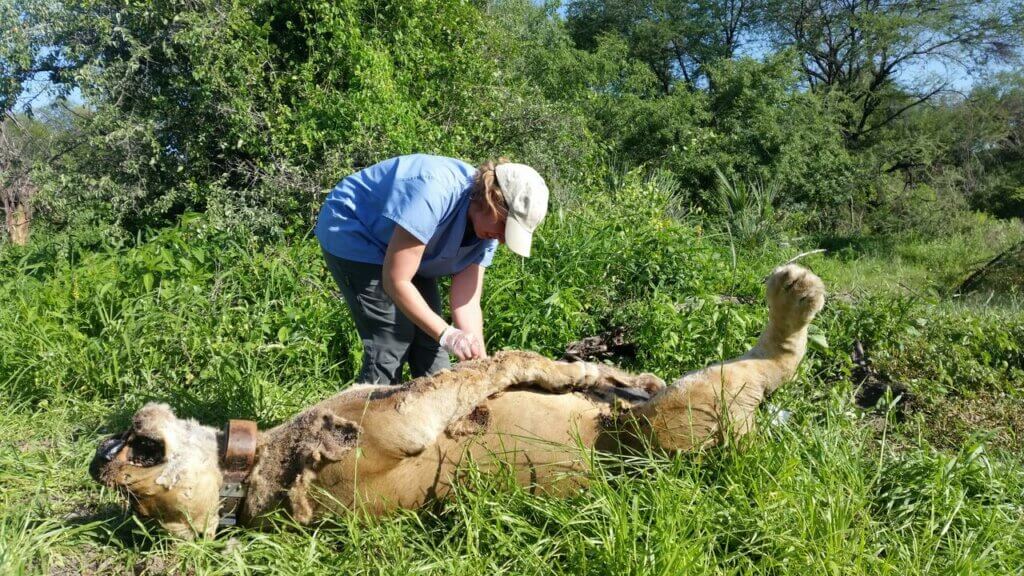
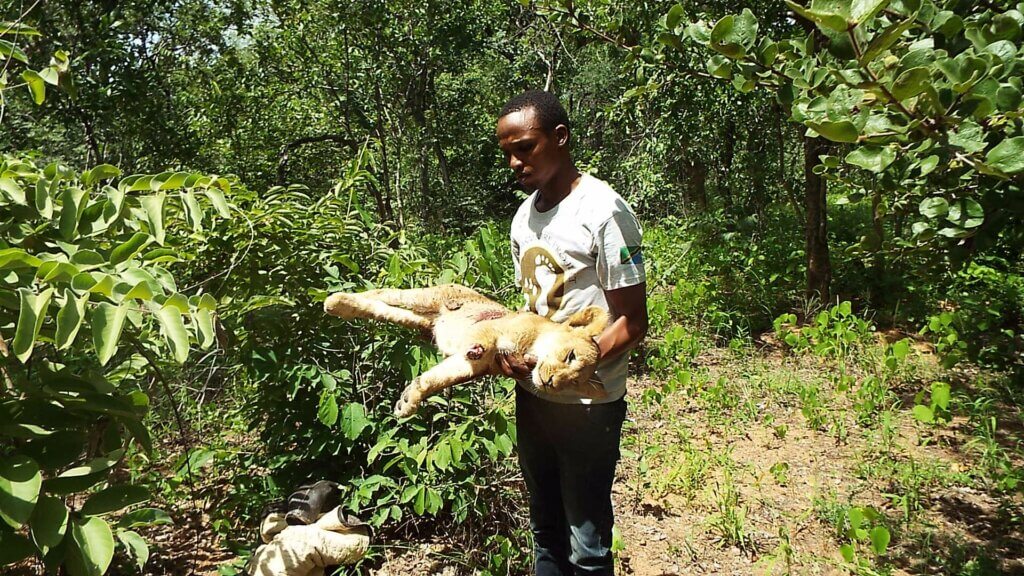
So please, inform yourself, debate, but do keep an open mind. Most of us arguing against import or hunting bans are not arguing against banning trophy hunting in principle – we are arguing against banning trophy hunting without a plan for how better to protect these areas. As I mentioned earlier, the situation will be different in different countries, and in certain contexts hunting bans or restrictions might have positive impacts on wildlife populations, as they have in some places in the past. However, this will not always be the case, and it’s important to appreciate this and make decisions on a case-by-case basis. Otherwise, as Dr Amy Dickman, the director of the Ruaha Carnivore Project, succinctly put it, “Trophy hunting is decried as immoral, and I personally dislike it. However, undermining it without implementing better solutions will increase horrible, unregulated killings, undermine local decision-making about wildlife use, reduce wildlife revenue, increase habitat and biodiversity loss, and leave the world far poorer for all our children. I deeply believe that is far more immoral”. Based on my years of work in both hunting and non-hunting areas, it is my firm belief that if we were to stop all hunting immediately, we would soon have considerably fewer wildlife in Africa than we do today.
[registration_form]
Paolo, thank you for that, a very informative read. I wonder though if you had any opinions on the topic of ‘driven game shooting’ as it is performed in the UK. Do you have any views on it’s value to the conservation of UK wildlife?
Hi Bill
There is a lot of info about how land managed for driven game shooting benefits wildlife in the UK. Driven game shooting is a divisive topic. I don’t like it myself. But I am happy about walked up game shooting and game shooting on a small scale to put food on the table. Each type of shooting has benefits to wildlife conservation when the land is managed well. Indeed many small shoots where I live in mid Wales–where biodiversity is in a dire state–do a huge amount for wildlife conservation by planting native trees, shrubs and cover crops, digging ponds, putting up bird boxes, creating banks for sand martins, and creating habitat for bats, on top of the management of the land for the game birds. I believe it to be about balance. I could find you evidence of the wildlife benefits from driven game shooting and associated moorland management ie for grouse shooting. But you can find that yourself too. I am concerned, as Mark Avery is, about the impact on the natural environment of the release of large numbers of pheasants for driven shooting. I need to do more investigation and reading about this.
Hi Bill,
Thanks for your comment, glad you enjoyed it.
I do not, sorry. It’s not really my area of expertise, and I have never really looked into it – although it’s definitely something I’m keen to learn more about. For now, however, I’ll leave this one to those more knowledgeable than me!
All the best,
Paolo
Again, thanks for the effort in producing this guest blog, a poignant topic well presented.
Thank you Paolo for an interesting and well-argued piece. Although outraged opposition is more emotionally satisfying I think you make a strong case for a more nuanced approach. For me personally, the survival of viable populations of lions and other large carnivores across as much of their natural range as possible is the key objective and I am prepared to consider various approaches to ensuring that including well-managed hunting. Although, for me, wildlife has an intrinsic value irrespective of its economic contribution it is not possible to ignore the legitimate economic aspirations of the people of Tanzania and other African countries or the fact that these aspirations rub up against the needs of the wildlife populations that we all admire.
Excellent piece Paolo. Well balanced without letting emotions get in the way of facts. Breath of fresh air on this blog. Hat off to you too Mark for allowing Paolo to publish this on here!
Whilst I agree that Paolo has written a well-balanced thoughtful article I would take issue with your implication that it is atypical in that respect as far as this blog is concerned.
Having a different view to yours is not remotely equivalent to letting emotions get in the way of facts.
Brilliant, somebody talking a bit of sense at last.
Paolo mentions, that not all areas suitable for hunting, can be converted to tourist destinations,
and the same rule applies to many upland areas of the UK.
Nice reply from Helena Venables also.
A well written and thought provoking blog. I agree with Jonathan that this is unrelated to the UK ‘hunting’ scenarios. Grouse moor management appears to involve killing a lot of wildlife to promote a shootable surplus of one species. I live in the middle of a pheasant release area. The woods are now full of 1000s of pheasants and blue plastic feeders ready for some buffoons to come and shoot them. Foxes are shot, species of competing birds are trapped and killed in large numbers. I see no comparison with Tanzania. Victorian shooting hobbies are an embarrassment. Regulation and proper scrutiny is long overdue.
Hi GT,
Thanks, glad you enjoyed it.
Yes, as I stated in another comment I know extremely little about hunting in the UK, apart from the fact that it takes place (and it involves mostly birds rather than lions). With regards to this particular blog, as both you and Jonathan correctly pointed out it is specifically about trophy hunting in Africa, and in particular in Tanzania. I am sure the situation will be very different here, and I hope this is not construed to show support for something I actually know very little about. Context is key.
All the best,
Paolo
History is littered with unintended bad consequences caused by well-meaning actions that have not been thought through. And the moral high ground is not the even plateau that many people would like to believe it is.
Great blog.
No. It is black and white; it is just that it intersects with a lot of other black and white issues, and thus can be used as a simplistic excuse to not tackle those appropriately too. The main driver is that we’ve got into such a mess that fixing them is going to take vast amounts of money that will have to come from the rich, and also require abandoning the traditional power structures (including an end to the male power and domination fantasy) which made and keep the rich rich too.
Most absurd response so far. I would suggest you put some more thought into it. I am trying a compromise and open to the fact that English might not be your first language.
What rich must fix what conservation problem ?
Male power ?
I do appreciate that you care enough to take part.
I am not attacking either.
Just as an aside, Paolo’s description of the situation in Tanzania (paragraph beginning, ‘However, let’s take a step back…’) is a classic example of the pressure that increasing population places on the space available for the natural world. The people involved are apparently predominantly very poor (and hence probably consume very few manufactured goods and emit minimal carbon), but their impact on wildlife can be devastating.
Of course, population increases in wealthy, developed, high-consuming parts of the world are even more damaging…
Why do you call it “Trophy Hunting”, when it is “Conservation Hunting”???
We manage all our wildlife areas for the wildlife, the head is purely a by-product to our management objectives!
The big difference between hunting in Africa and hunting in the UK is that a lot of hunting in Africa takes place in areas contiguous with national parks (real ones), and which therefore help support diverse wildlife populations as part of fully functioning, intact ecosystems where the hunting areas often serve as vital corridors linking otherwise isolated photographic reserves. The fees from trophy hunting also often fund local schools, clinics and anti-poaching work, and of course there is the meat yield, all of which mean that overall the general populace typically tend to favour trophy hunting, or at least view its benefits as some mitigation for the real costs they bear living alongside large and dangerous animals. Certainly the hunting ‘moratorium’ in Botswana was deeply unpopular with many who had previously benefited from hunting.
This contrasts with commercial shoots in the UK where the most that can be said is that shooting estates support a handful of jobs, but high-handed and aggressive estates also often alienate a proportion of locals while wider public opinion increasingly views shooting as at best idiosyncratic and at worst psychopathic. The RSPB have famously stated that well run shoots can benefit wildlife, but one wonders what proportion of shoots actually qualify as such. In the UK so much of the landscape is managed for the benefit of just a handful of target species, be it pheasants in the lowlands, red grouse in the uplands or red deer on other Highland estates and although much is made of incidental beneficiaries such as waders, there are also many losers. Crucially, these are not natural landscapes, they are not fully functioning ecosystems and the management regimes they demand often threaten rather than protect various other elements of the natural faunal and floral assembly, be it through over-grazing due to over-stocking deer, excessive muirburn damaging deep peat and sphagnum bogs, or raptor persecution on driven shoots. And that’s before we consider the flood risks posed by naked hillsides… In short I believe there is a strong case to support (or at least tolerate) trophy hunting in Africa until such time as an alternative is found that offers the same benefits, while there is a strong case for root and branch reform of shooting in the UK with licensing of driven grouse shooting an overdue first step.
Paolo this is an excellent blog and re-enforces what I have argued many times. Personally I dislike hunting, but I am a conservationist not an animal rights activist, so it is refreshing to see someone make that distinction so eloquently. Clearly in a poor African country, and a truly wild space, hunting can be a driver for conservation. Whatever anyone’s position, if hunting money disappears from Africa then we will lose so much more than just individuals of the trophy species. Either live with it or provide alternatives.
I see no comparison whatsoever with gamebird shooting in the UK, which is entirely reliant on mass releases, comprehensive land management and predator control. The context is entirely different, and the socio-economic arguments are incomparable.
A balanced and practical piece, this really should be read by the entire world. Writing from Zambia, where much of the landscape is being burned currently for charcoal, and where you’re lucky if you see a squirrel outside the official game management areas (read ‘hunting areas’) and national parks, I must say that people have to appreciate that it simply isn’t as easy as saying, “this is bad; ban it”. There are many excellent and professional conservancies out there funded by hunting – some that have even been part of recovery programmes where previously there was nothing, and where there would be nothing to replacement if they were gone. Entire populations and ecosystems funded by the deaths of a few individuals. And, whilst many may find that seriously unpalatable, it’s possible for both sides to be right about this subject: that those conservancies be necessary for the time being *and* the means by which they are funded unpleasant and morally questionable (even repugnant to many). The question is how you harness the good, and transition to the better. That process may be a source of frustration to many, but it’s worth taking one’s time to ensure we’re keeping our eye on the ball – and for the time being that ball is population and ecosystem health, not American dentists.
“…ensuring any hunting is carried out in the most sustainable and humane way possible…”
This phrase caught my eye, because I was wondering whether or not you would discuss the mind-set of those who hunt? Hunters could be somewhat conflicted personalities – see how they love their companion animals like the dogs they hunt with, while apparently lacking any compassion for the hunted. Perhaps a Ph.D. topic right there, if you get to supervise a student yourself later on
Thank you, Paolo, for a very well written blog on an important topic and also thank you to Mark Avery for publishing this.
The balanced view on hunting tourism as a tool for nature conservation has sadly been actively suppressed by the British Press. It takes courage to go against the stream and publish inconvenient and unpopular facts about a practice that so many people both hate and know very little about.
No matter what each one of us feel about hunting (I am a hunter myself) it all boils down to a matter of priority. What is most important to us? Our feelings about hunting or actual nature conservation results?
Hello Paolo. Thank you for this thoughtful piece. I have just begun to dive into it. But before I go too far, could you please clarify / define “protected area” as you are using it. Does that mean privately owned, state-owned, co-managed, or something else?
Thank you.
BTW, my experience is 30 years in the Democratic Republic of Congo. So, quite different then your case study.
Here is another angle on the same subject. In South Africa, most hunting takes place on private land that has been rewilded from cattle farms. This video illustrates the potential consequences of a trophy hunting ban in a very simple manner.
Link: https://youtu.be/rEQ_AawMS7A
Great write up and discussion of lots of the major issues in a well thought out manner.
One aside:
“What if, after hearing all this, you still believe that no matter the context it is always wrong to kill something for pleasure, and that trophy hunting should therefore always be prohibited based on this principle? While this is a valid ethical stance (assuming you’re vegan, of course)”. Why is that a position only a vegan could reasonably hold? It doesn’t seem like an immediately logical outcome to me. Approaching this from the point of view of a biologist I would say there is a is a vast difference between shooting a endangered apex predator for pleasure and eating a domestic chicken for food for example.
Excellent blog, but a small quibble.
Many of us who hunt these animals are looking for males past their breeding years, animals who no longer contribute to the gene pool and only consume resources.
As you correctly point out, the greatest threat to wildlife isn’t hunting (or even poaching), but loss of habitat from swelling populations of people. In 1960, there were about 250 million people in Africa. Today, 2019, there are about 1.2 or 1.3 billion.
Like it or not, hunting makes all game species economically valuable, particularly to the locals. Much of the farming in southern Africa is still done as it was done 2 or 3 centuries ago in North America and Europe: by hand. Not even any benefit of draft animals like horses or oxen. This limits a farmer to maybe 20 acres to which he can tend. Two or three elephants can wipe out 20 acres of millage in a single night. If he’s wealthy enough to own a few goats or a couple head of cattle, he can be wiped out in a single night by a few lions, hyenas, or wild dogs.
The 10K in USD I bring in for a week of plains game hunting, and WAY north of that for any of the “Big 5,” makes those agricultural losses palatable to the locals.
It isn’t simply money, it is survival for almost all of them. If the land isn’t set aside for hunting, it will be converted to agriculture, which harms entire populations of those animals, rather than the handful (relatively speaking) that we shoot in any given year.
This is another angle on the subject. In South Africa, most hunting takes place. This video illustrates the possible consequences of a decoration hunting ban in a simple method.
Having lived on this planet for well over half a century.. I have one thing to say.. There are too many people on this planet and they will breed into extinction.